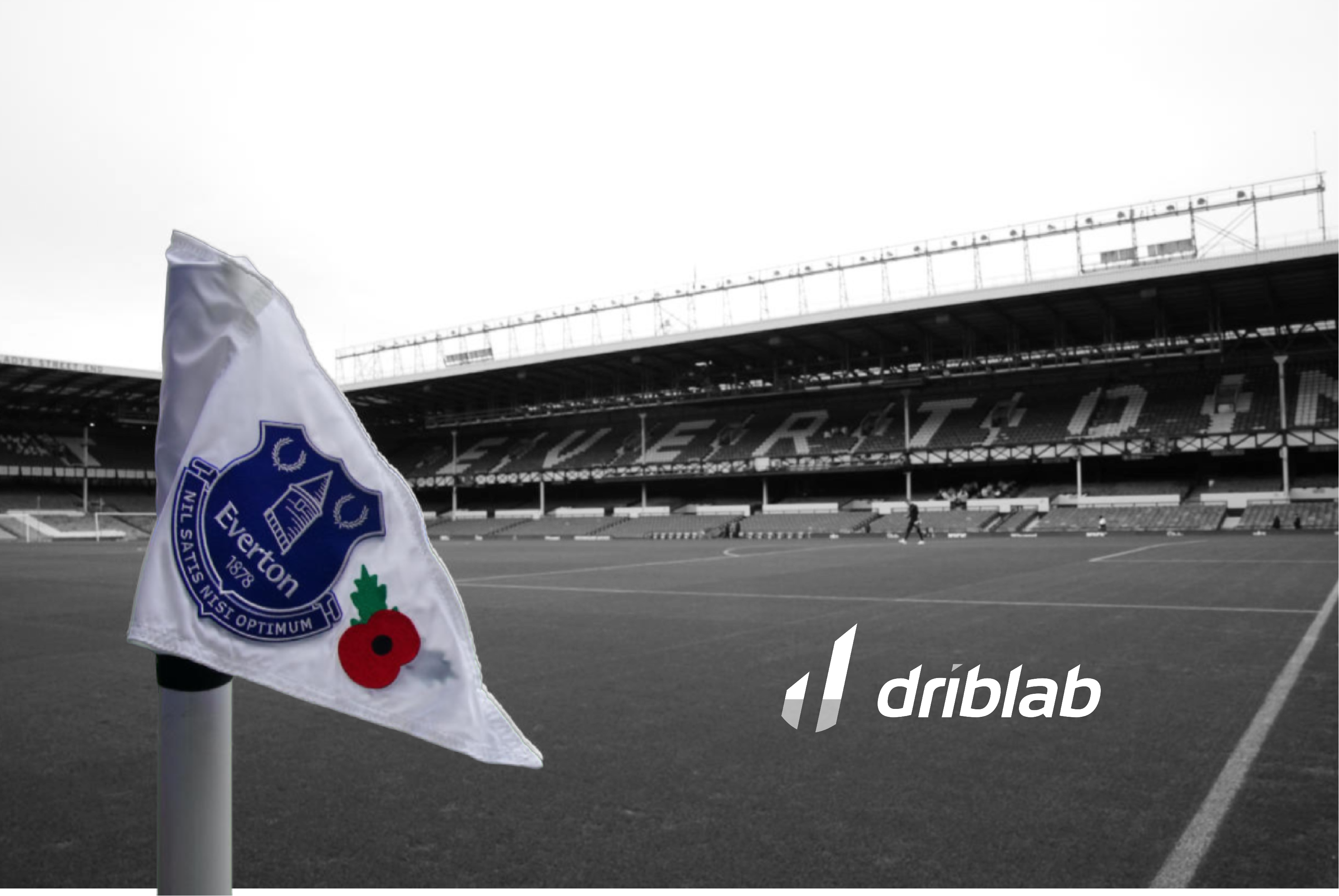Making a difference in football is a maxim that belongs to the players, but behind it, there are many ways to get results when you don’t have as much talent. The club’s working teams analyze every detail with the goal of adding that handful of points that can turn relegation into permanence or a runner-up finish into a championship. That’s why, among other things, set pieces continue to consolidate themselves as an extraordinarily important parameter in the dynamics of the game.
This issue has been closely linked as an ‘anti-relegation’ parameter in previous seasons. Thomas Frank and his Brentford have championed this commitment to set pieces, designing highly creative plays even from throw-ins, including all kinds of actions in free kicks from the side, free kicks from the front, or corner kicks. A range of surprises with various details that have earned them a significant number of points. The other great coach in this aspect of the game has been Sean Dyche.
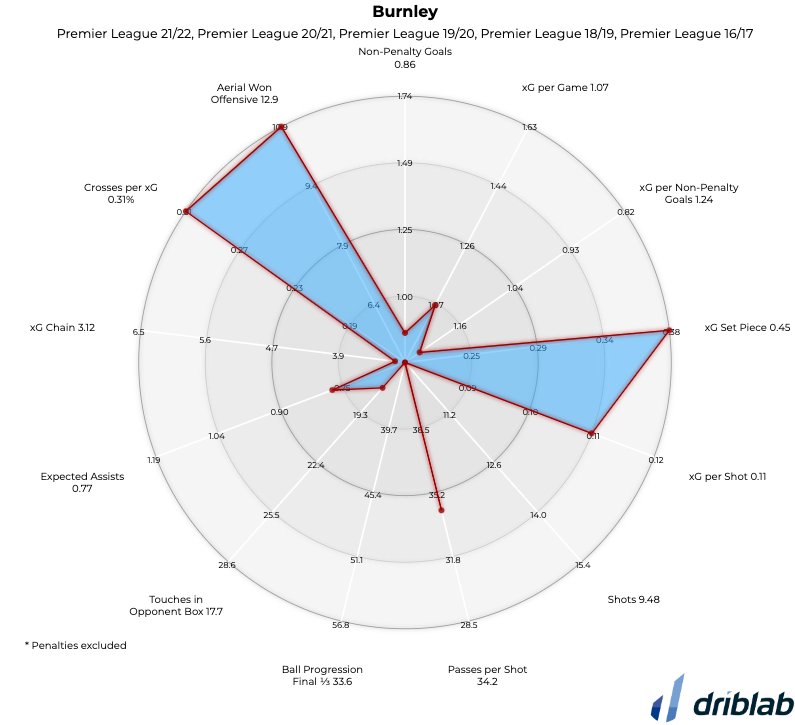
On January 30, 2023, Sean Dyche became the new manager of Everton. In the following five months, he transformed the ‘toffees’ into a team completely different from the one previously coached by Frank Lampard. Stylistically, he reduced the number of passes per shot to 24 compared to Lampard’s team, which made 40 passes, or almost doubled the number of offensive aerial duels (10.8 vs. 5.9) and generated expected goals from crosses (0.28 vs. 0.17). But the most noticeable change, leading them to become the best team in the Premier League, was in set-piece situations.
In the six seasons that Dyche led Burnley in the Premier League, the team averaged 0.42 xG from set pieces, consistently ranking among the top teams in the competition. In the radar above, we quickly see the three pillars regarding Dyche’s teams’ playing style: direct play, aerial duels, crosses into the box, and a strong emphasis on set pieces.
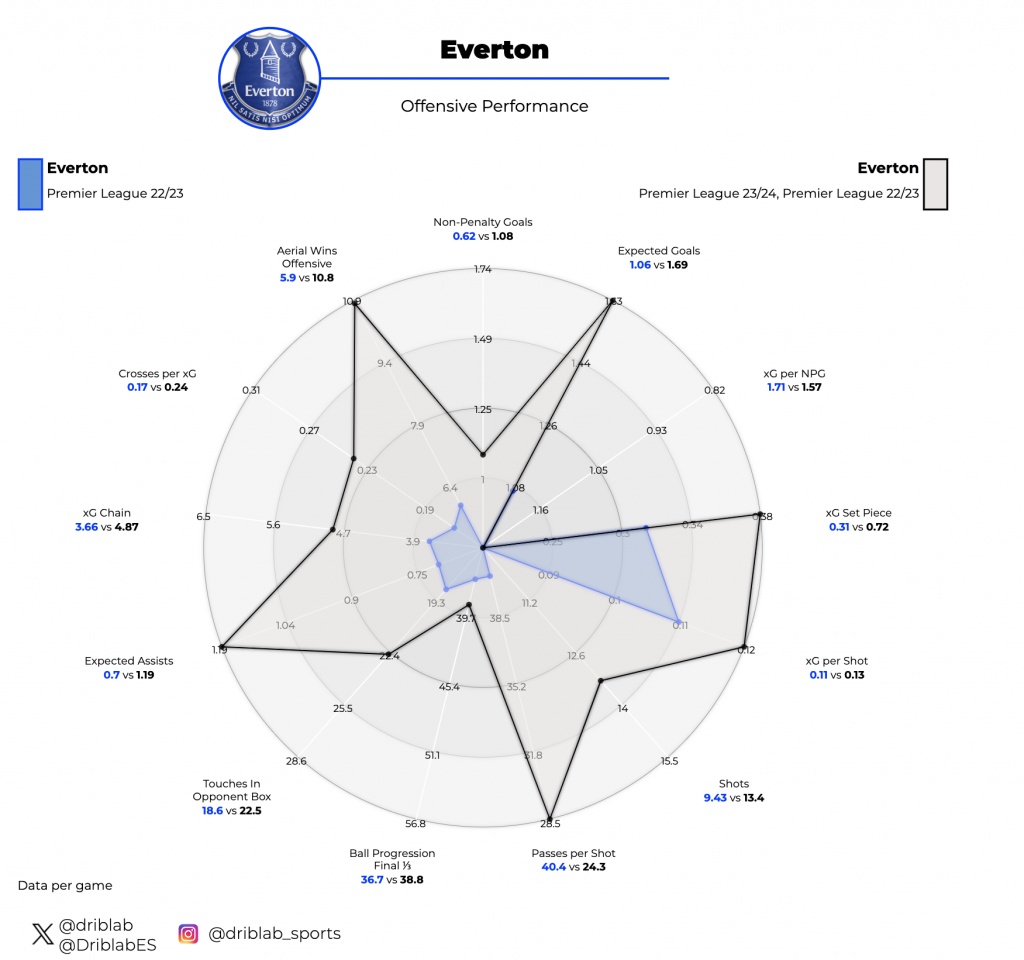
Dyche’s Everton was able to generate 0.76 expected goals per 90 minutes, significantly high figures. With Lampard, although the team was already above average in this metric, they “only” generated 0.31. These numbers, which the current Everton has maintained this season, have made them the best team in the top five leagues in generating expected goals from set pieces.
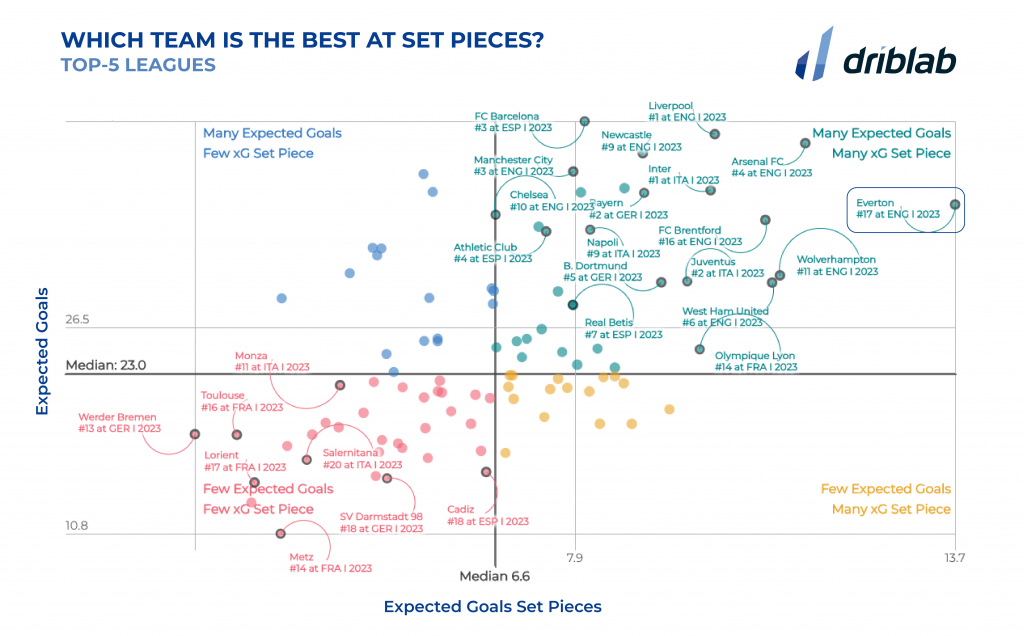
This statistic alone explains a lot and holds extraordinary value within a team. However, two circumstances converge to make it even more valuable for Everton. Firstly, Everton suffered a 10-point deduction last November for violating Financial Fair Play, which undoubtedly had a significant impact on the team’s morale. And secondly, and perhaps more importantly, Everton is the worst team in the Premier League in shot efficiency. Despite generating more than 34 expected goals, they have only managed to score 24. Yes, set pieces are sustaining them, but if that creativity and efficiency through corners or free-kicks do not persist, the team could face many more problems in the standings.
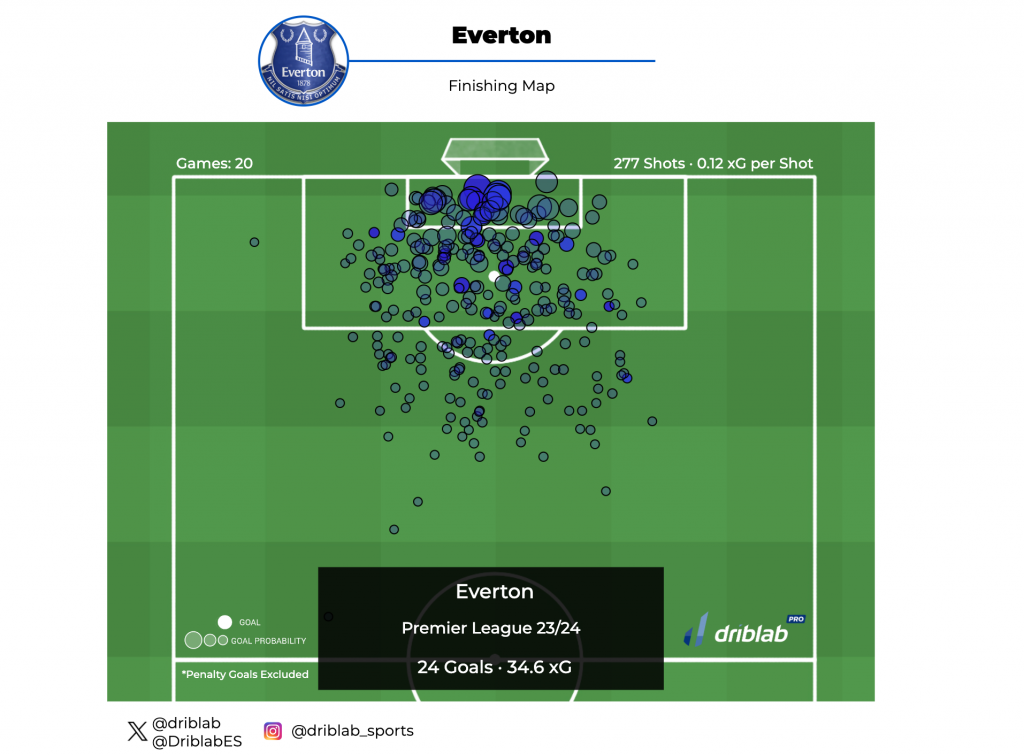
Currently, Everton has scored 11 goals from set-piece situations. Is that a lot? Is it a little? Well, by looking at the percentages between their expected goals and goals from open play and their expected goals and goals from set pieces, we can gauge the dependency of each team. Using a specific part of the performance dynamics within driblabPRO, we can closely examine each team’s performance in different competitive circumstances. 41.7% of Everton’s goals come from set-piece situations. No other team has such dependence or makes such a difference with such plays.
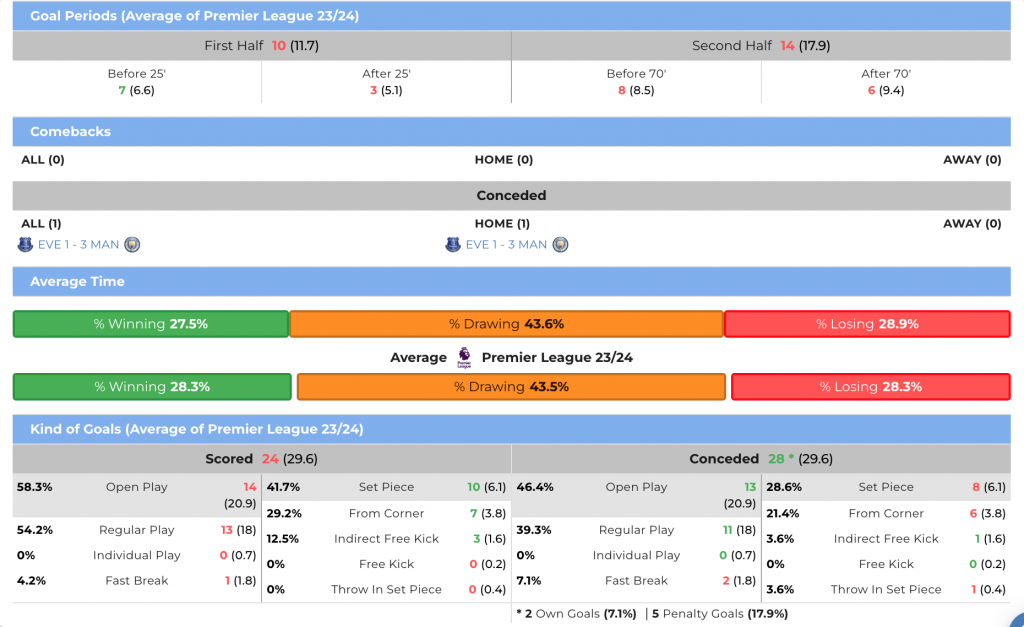
This is why set pieces are once again lifting Everton, to the point of being the best team in Europe, but the dynamics could change. Data helps us better understand everything surrounding a team’s collective performance. As seen in the upper graph, we can find out how many goals came from corners, indirect free-kicks, direct free-kicks, or throw-ins. We can also compare it with goals conceded, produced by opponents.
Founded in 2017 as a consultancy, Driblab has driven innovation through data in all aspects of professional football. Thanks to a transversal model, its database collects and models statistics in all directions. From converting matches and videos into bespoke data for training academies to developing cutting-edge technology, helping clubs, federations and representative agencies in talent scouting and transfer markets. Driblab’s smart data is used by clubs all over the world, with success stories such as Dinamo Zagreb, Real Betis and Girondins Bordeaux among others. Here you can find out more about how we work and what we offer.
